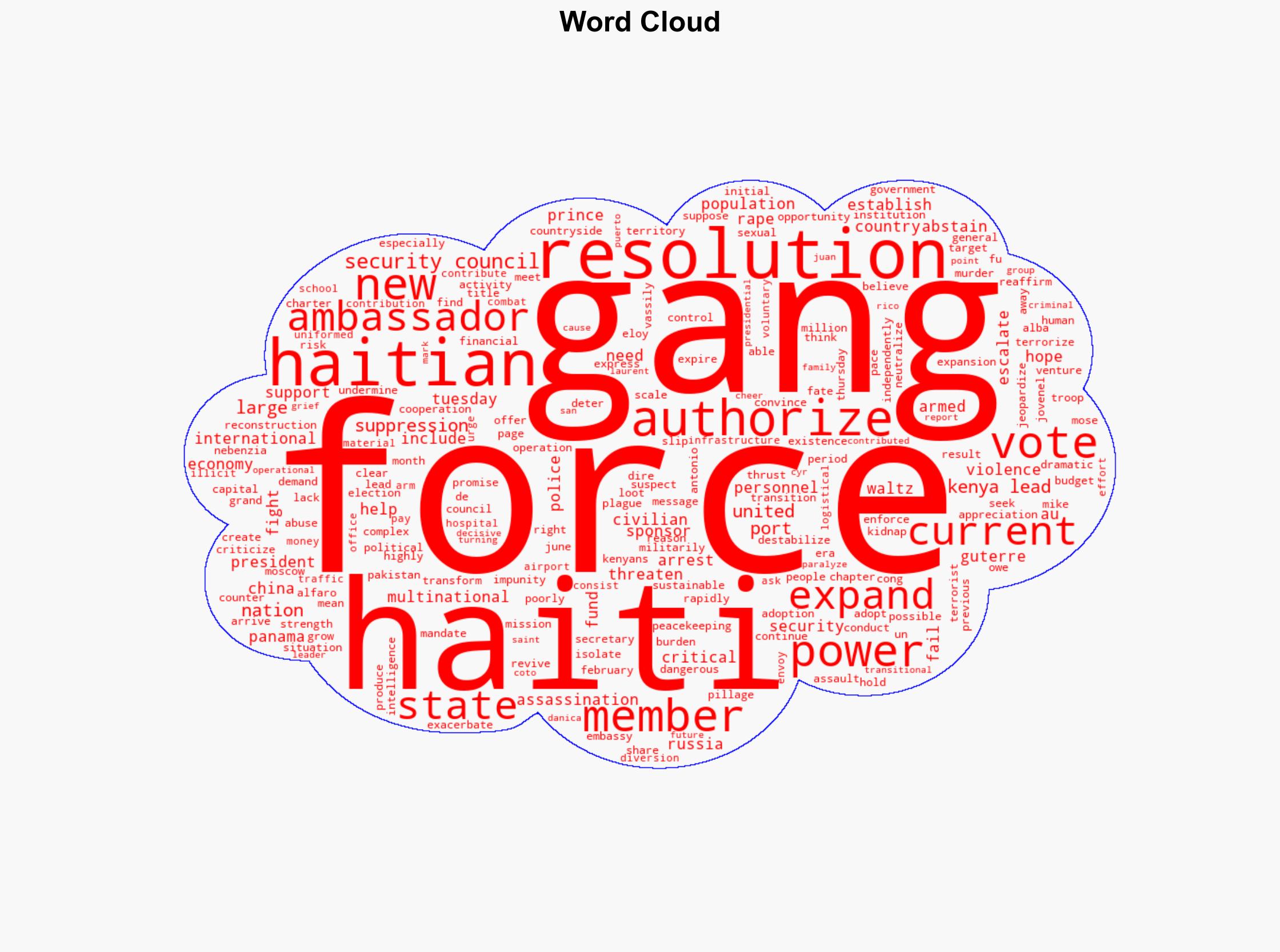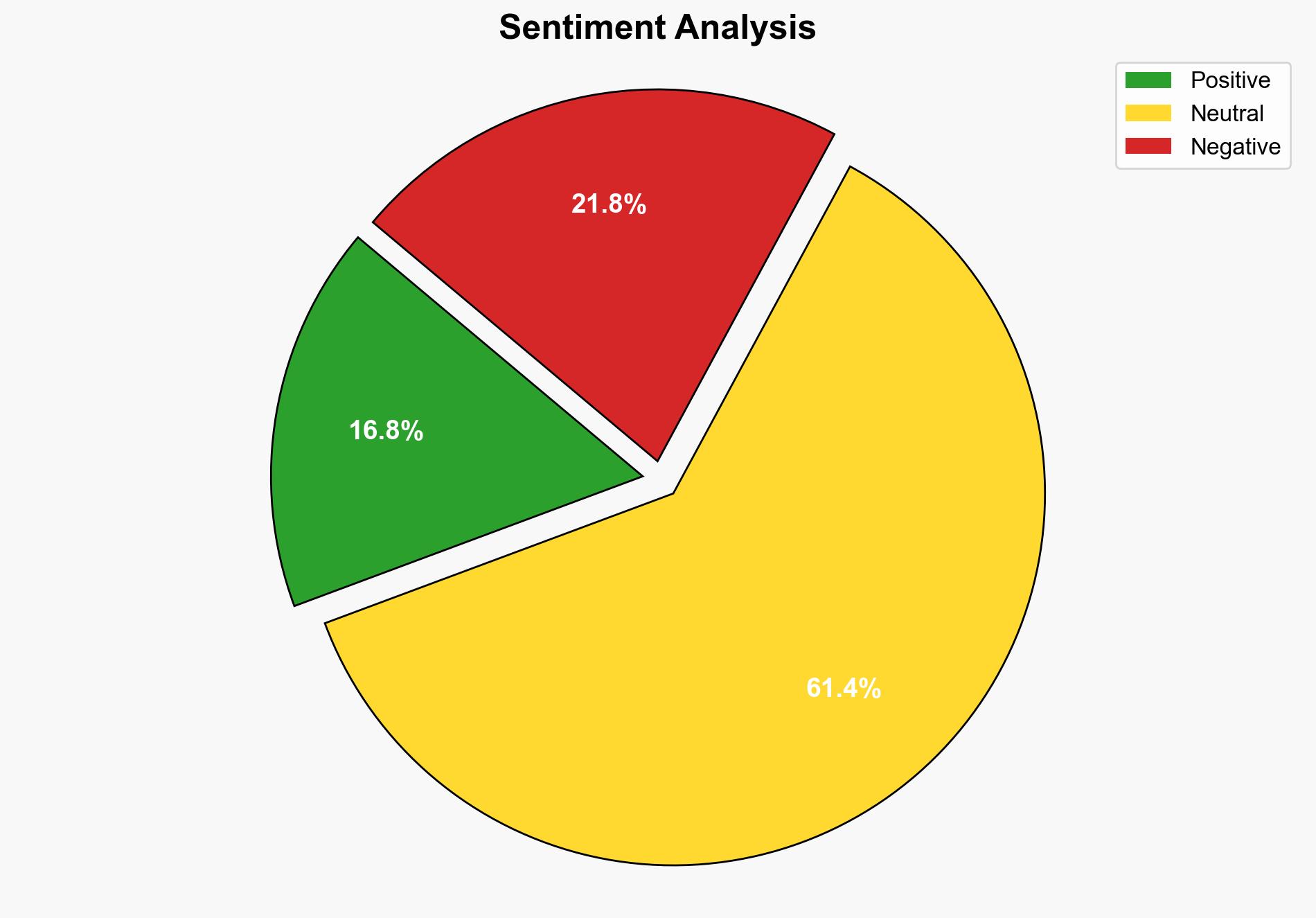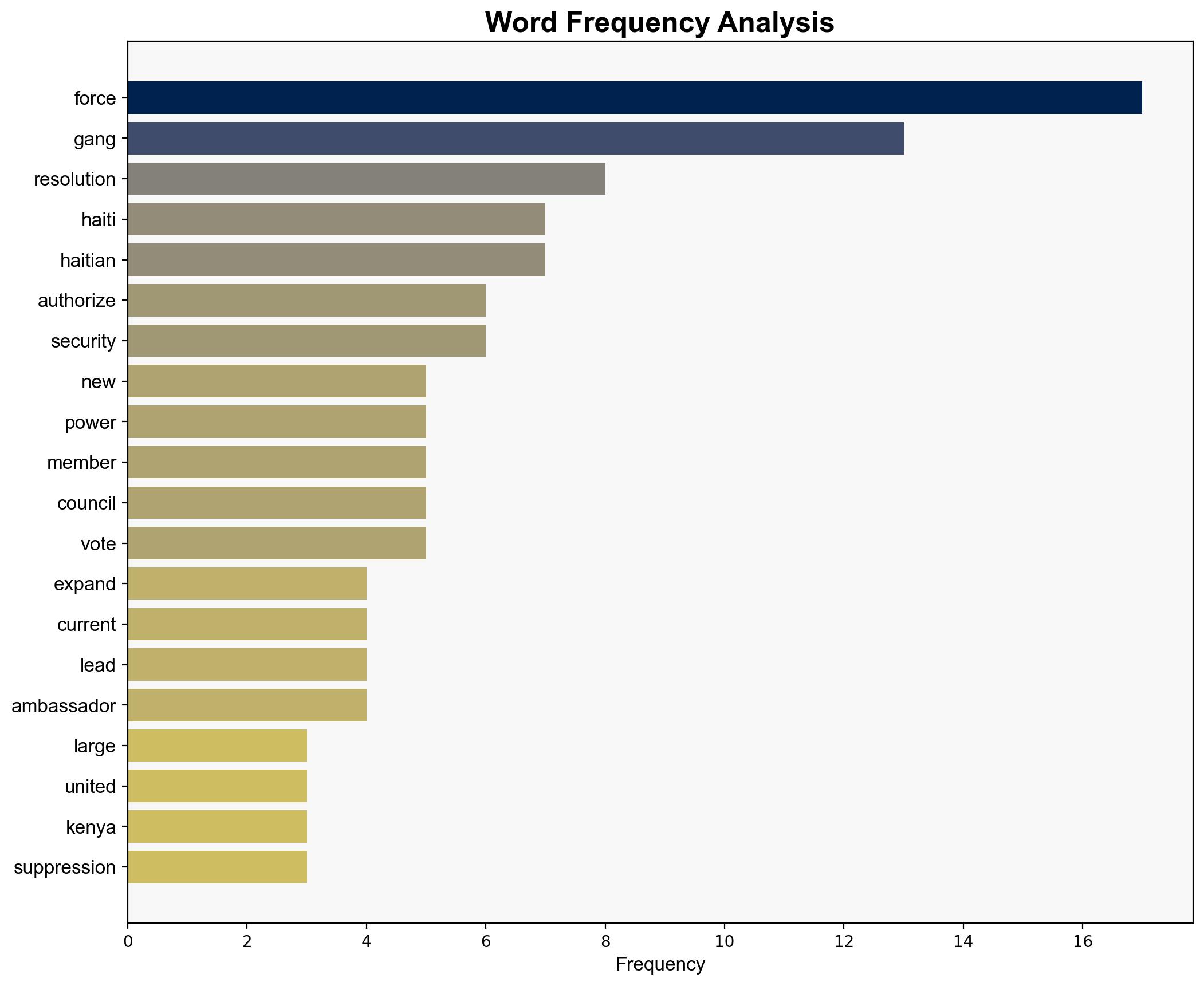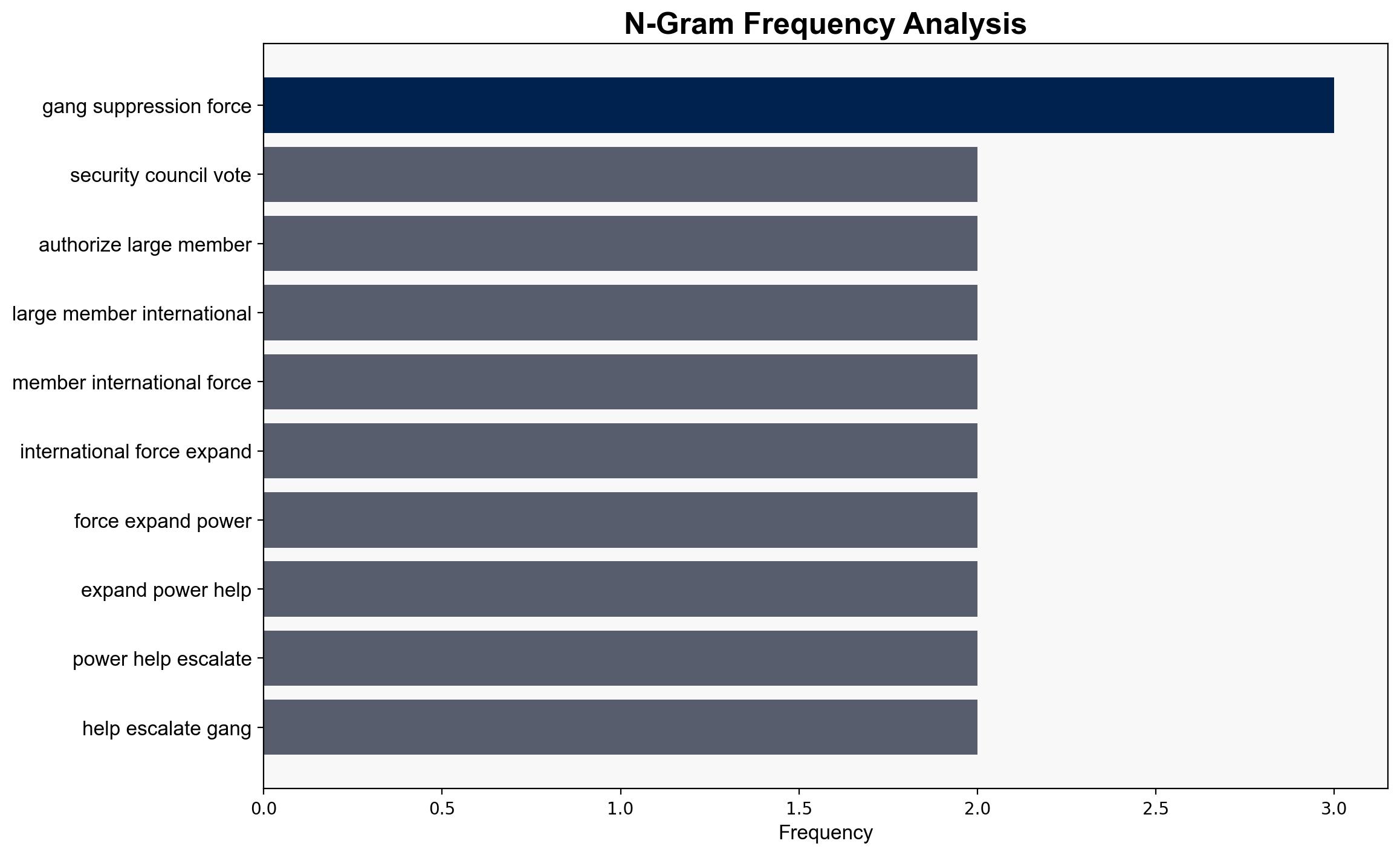UN authorizes a much larger force to fight gangs in Haiti with new power to arrest gang members – ABC News
Published on: 2025-10-01
Intelligence Report: UN authorizes a much larger force to fight gangs in Haiti with new power to arrest gang members – ABC News
1. BLUF (Bottom Line Up Front)
The UN’s authorization of a larger multinational force to combat gangs in Haiti is a strategic move aimed at stabilizing the country. The most supported hypothesis suggests that this force will initially suppress gang activities, but long-term success depends on sustained international support and internal political reform. Confidence level: Moderate. Recommended action: Ensure robust international funding and political support for the mission, alongside efforts to strengthen Haitian governance and economic conditions.
2. Competing Hypotheses
Hypothesis 1: The expanded multinational force will effectively suppress gang violence, leading to improved security and stability in Haiti. This is supported by the increased mandate and international backing.
Hypothesis 2: The force will face significant challenges, including insufficient funding and local resistance, leading to limited impact on gang violence and potential exacerbation of the situation. This is suggested by historical precedents and current criticisms from countries like China and Russia.
3. Key Assumptions and Red Flags
Assumptions include the belief that international forces can operate effectively in Haiti’s complex environment and that increased military presence will not provoke further violence. Red flags include the abstentions by Russia, China, and Pakistan, indicating possible geopolitical tensions and lack of consensus. The absence of detailed funding commitments raises concerns about the mission’s sustainability.
4. Implications and Strategic Risks
The deployment could stabilize Haiti temporarily but risks include potential backlash from gangs, leading to increased violence or targeting of international forces. Economically, instability could deter investment, while politically, failure to improve governance could undermine the mission. Geopolitically, lack of unified support may weaken the mission’s legitimacy.
5. Recommendations and Outlook
- Secure comprehensive funding and logistical support from the international community to ensure mission sustainability.
- Integrate efforts with Haitian political reform initiatives to address root causes of instability.
- Scenario Projections:
- Best Case: Successful suppression of gangs, leading to improved security and economic recovery.
- Worst Case: Escalation of violence and international withdrawal due to lack of support.
- Most Likely: Partial success with ongoing challenges requiring long-term commitment.
6. Key Individuals and Entities
– Mike Waltz: U.S. Ambassador, advocate for the resolution.
– Eloy Alfaro de Alba: Panama’s Ambassador, resolution sponsor.
– Fu Cong: China’s Ambassador, critic of the resolution.
– Vassily Nebenzia: Russia’s Ambassador, abstained from voting.
– Laurent Saint Cyr: Leader of Haiti’s transitional presidential council, supportive of the vote.
7. Thematic Tags
national security threats, regional focus, counter-terrorism, international cooperation




